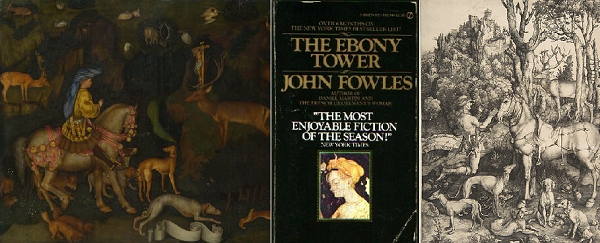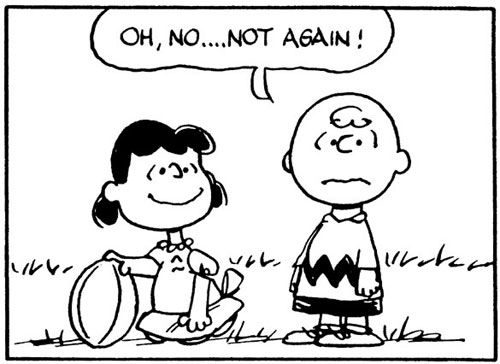Playing politics and other games, &c
Thursday, January 25th, 2018[ by Charles Cameron — how shall we frame this last week in Washington? ]
.
Sapir-Whoff, George Lakoff, Carl Jung:
I’m a firm believer of some version of the Sapir-Whorf hypothesis to the effect that it’s hard for us to think thoughts when the necessary vocabulary is not available to us — so that while an expert surfer can distinguish maybe 50 different kinds of waves by name, the rest of us can only manage to discern maybe five or six types. I also think, with George Lakoff, author of Don’t Think of an Elephant!, that the metaphorical framings we use has enormous impact on our conversations — so that liberals framing things in terms of the “nurturing mother” contrasting with conservatives framing in terms of the “stern father” — or DACA people being “kids who, through no fault of their own” are in this country, vs “illegal immigrants” — will tend to win or lose depending on which of those framings has the most powerful resonance among voters. Finally, I’m in agreement with Carl Jung that certain deep patterns in the unconscious, which he termed “archetypes”, have a basis in instinct [CW 6, par. 765], are explored in myth and the arts, and have extraordinary profundity and depth — so that generations are moved by the story of St Eustace out hunting, meeting a stag with the crucified between his antlers, from Albrecht Durer and Pisanello to John Fowles [in The French Lieutenant’s Woman, The Tree, and The Ebony Tower] and Russell Hoban [in Riddley Walker].
Pisanello, Fowles and Durer
Some words and metaphorical phrasings, then, are of significant importance. It is for that reason, then, that I’ve tried to keep abreast of at least a few of the play and game metaphors that have surfaced in the course of the last few days, while I’ve been stuck in bed without the internet, and with only the TV — and no rewind button — to keep me abreast of events.
**
Game and play metaphors, early:
These were the metaphors and framings I caught during my first three or four days without internet.
Reince Priebus was the one I caught using the phrase “play politics”, and White House OMB Director Mick Mulvaney said Senator Chuck Schumer “needs to up his game”. But if politics is a game politicians play, it’s a bipartisan game — both parties toss the term “game-changers” about freely, and each plays “the blame game” against the other. Indeed, Chuck Todd of Meet the Press sais “the blame game is what the two parties do best”, and Mitch McConnell said “When all the games stop, the issues are still there.” It might be nice to have no more games, with only the issues “in play”. Meanwhile, the President “has watched all this play out..”
There are, however, many more specific game and play references to be found in recent news reports, and they’re more inventive, more interesting than the generalized game references I’ve noted above. I’ll do my best to identify whatever I managed to note down, though it’s hard for me to keep track of all the details while stuck in bed watching TV. Here goes:
Chris Matthews said “I think [Sen Schumer] has all the cards.
Jennifer Rubin (WaPo) said someone, likely President Trump, “bounces around like a ping-pong ball in a wind tunnel”.
Steve Schmidt compared a politician to “Charlie Brown and Lucy with the football.”
Someone on Meet the Press said the shutdown was “the Fight Club vs the Waffle House” I’m not sure which is which, nor who’s the winner here.
Brian Williams to Nicole Wallace: “As you delicately put it, the President plays whack-a-mole rather than chess”.
**
later part of the week:
Senator Graham’s suggestion to Democrats then currently in negotiation, after discussing ways in which the Republican position has been evolving: “don’t overplay your hand.”
Another term I’ve heard tonight drawn from Bridge (think “Double No Trumps” and from other card games: “The president has been the wild card here”.
Someone, The Dems “must play the hand they have”
Better, delightfully punning, the New Yorker: “Jared Kushner Is China’s Trump Card“.
Garrett Haake: “The House has always been the heavier lift for the Democrats..”
Here’s a refreshing game-metaphorical novelty from Garrett Haake to Kasie Hunt: “It’s a waiting game, Kasie”.
Rep Charlie Dent to Katie Tur: “The Queen of the Hill strategy“. Charlie Dent has used this phrase before, FWIW.
And someone on MSNBC: “DACA is the football”.. Come to that, Fort Smith DACA recipient feels like ‘political football’. Ashley Parker, observing comings and goings on the Senate floor: “This is how I watch football games.. I don’t know how to help, I don’t really understand what’s going on.” Leigh Ann Caldwell: “They’re going to go and huddle and see if it’s enough” and (maybe someone else) “instead of kicking the can down the road”. Best football ref? “Pelosi, Dems accuse GOP of moving goal posts on DACA deal“.
Regarding the Mueller investigation, Michael Steele used Shakespearean phrasing, telling Hallie Jackson: “Of all the players and actors in this drama, Sessions is the weakest link.”
Ari Melber, comparing the loyalty Trump appears to look for in his AG and senior FBI officers with Christopher Wray‘s reasons for threatening to resign if Andrew McCabe is removed: “He was threatening over the same ballpark”.
Tony Perkins, explaining thatt the Evangellical Right will no longer support Trump if he reverts to his earlier behaviors (eg his affair with a porn star), “Tony Perkins: Trump Gets ‘a Mulligan’ on Life, Stormy Daniels“: “We kind of gave him—‘All right, you get a mulligan. You get a do-over here,” Perkins told me.. “You know, you only have two cheeks,” Perkins says.
Lawrence O’Donnell discussing the government shutdown and his own times working in the Senate past midnight, saying there are often few options, none of them entirely satisfactory: “It’s usually a toss up”.
Carol Leonnig: “Trump’s lawyers have been squaring off” with Mueller.
Chuck Schumer before the final Senate vote to re-open the government: “The great deal-making President sat on the sidelines.”
After the vote: “The White House chose to take an aggressive victory lap.”
2020? “A far left and far right race?”
A touch of game theory, late Sunday night: “But the Democrats’ strategy in Washington’s latest game of “shutdown chicken” has some important data behind it — at least as the numbers currently sit.”
Chris Matthews won my prize for best paradox when he came up with “High Noon at midnight” — that’s not a game reference of course, but then Matthews is the guy whose program is called “Hardball”. And Ari Melber gets kudos for “eleven is the new ten” — brilliant, if you know the Spinal Tap “eleven” reference, and don’t think it’s about George Clooney and “Ocean’s Eleven”.
And BTW, is “running for office” an athletics reference? Runners from sprints to the marathon at the Olympics might think so.. Come to that, I’ve seen this whole protracted negotiation around the government shutdown referred to as a “marathon” — a weekend of marathon closed-door negotiations on Capitol Hill to reopen the government, Rolling Stone — so there’s a game ref there after all.
**
Yesterday:
MTP: “the durability of institutions doesn’t matter to people in the ballgame.” DId I get that right?
Ari Melber: “we are going towards the red zone.” Yup.
Ari Melber, again: “You’ve been in these things — we call them scrums.” I’m not sure whether tjat’s a direct Rugby reference, it may come via the business methodology of that name…
Chris Matthews: “You’re losing a game of checkers, you’re losing a game, you break the board”. I may be able to get this one in context when the transcript becomes availale tomorrow — watch this space.
Carol Leonnig: “The President speaks in the language of a pugilist.” I googled “Carol Leonnig pugilist” to see if there was a transcript yet, and google supplied quotes from Leonnig about Barbara Boxer. Close, close.
Meanwhile, Trump: “Now they’re saying, “Oh, well, ‘Did he fight back? Did he fight back?’ You fight back, ‘Oh, it’s obstruction.’ So, here’s the thing: I hope so.” That’s pugilist talk, I think.
Someone, about the negotiations between Mueller and Trump’s attorneys, after the President said he’s looking forward to speaking with Mueller: “This doesn’t help if they wanted to start with a low bid.”
Brian Williams to Philip Bump of WaPo: “This isn’t your first rodeo eitther.” That one took me by surprise! Ride’em, cowboy!
**
Today, Trump is in Davos, and I’m still in bed, in recovery. I’ll bet there are some weak imstances here, but the overall use of sports metaphors is overwhelming — no other framing comes close. There are likely some typos here too — blame my meds, okay?
Your crazed-looking friend:
Charles…
Let’s talk!














